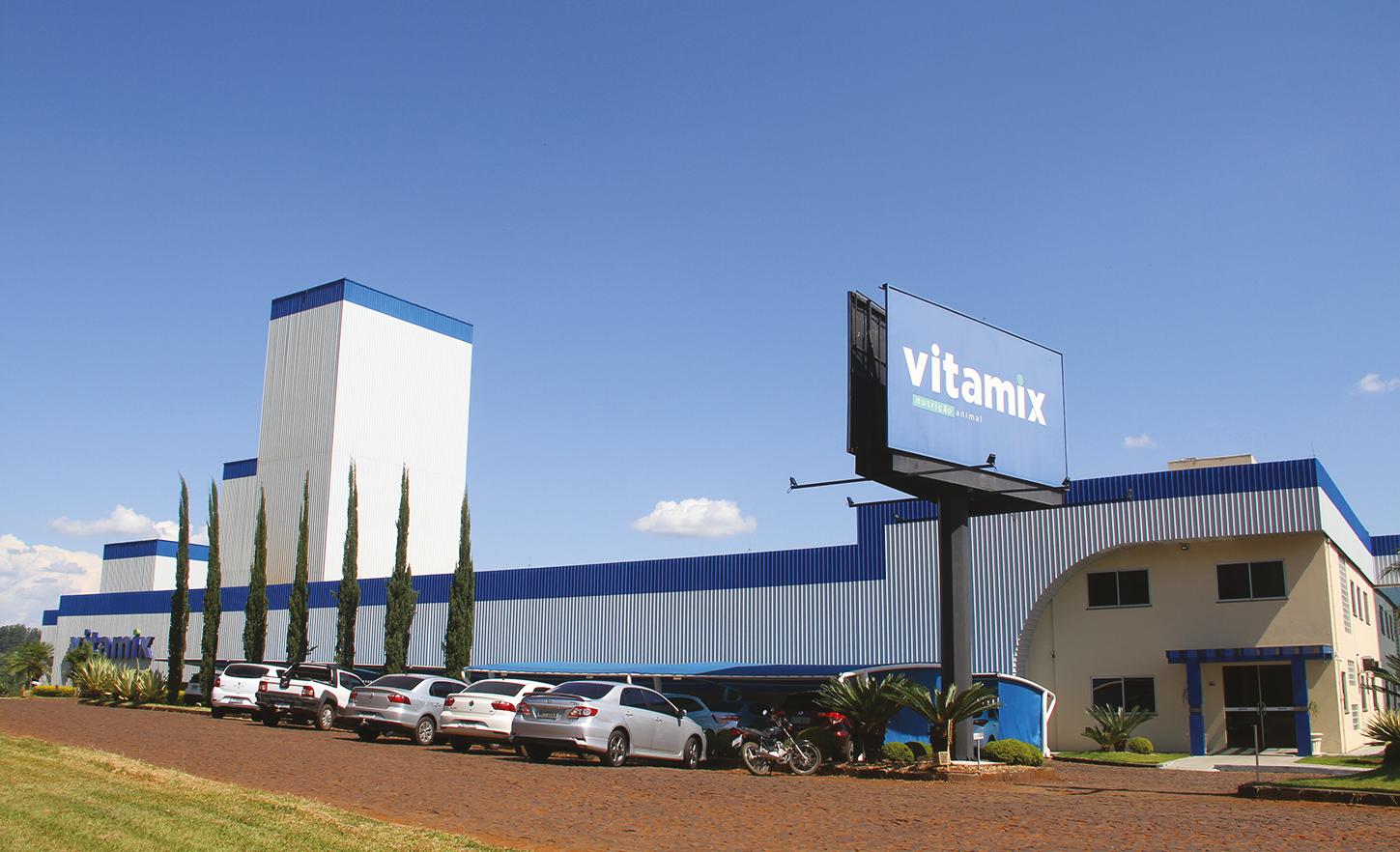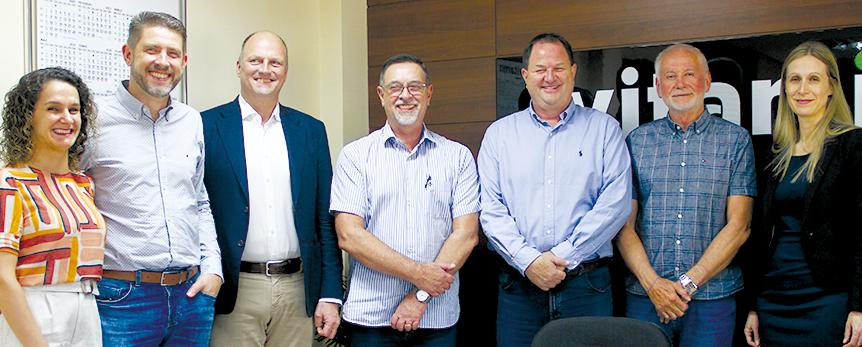
5 minute read
Vitamix to Give Vilomix Foothold in South American Premix and Mineral Feeds Markets
In late March, Denmark’s Vilomix acquired a 75% shareholding in Vitamix Nutrição Animal, a Brazilian premix and minerals company.
Founded in 1998, Vitamix is headquartered in Nova Itaberaba in the state of Santa Catarina. The company employs 100 people in Brazil and Paraguay (about 65-70 in Brazil; 35 in Paraguay) and recorded sales of approximately DKK 130 million (approximately $18.7 million) in 2022.
Vitamix operates two factories: one in Brazil and another in Naranjal, Paraguay, which opened in 2021. In total, both factories have five production lines for mineral feeds, premixes, and concentrates. Their overall maximum capacity for mineral feeds, premixes, and concentrates is estimated at 40,000 tonnes/year.
Commenting on the tie-up, Enio Feiber Sônego, one of the company’s founders, was quick to highlight the technological synergies for animal nutrition and production with Vilomix in the picture. Enio Feiber Sônego will stay in the business and retains a 25% share.
Peter Iversen, CEO of Vilomix, also commented on the synergies in late March: “We see clear synergies between Vitamix and Vilomix, and together we have great potential in the sales of feed additives and customised premix solutions. At the same time, we believe that our strength and expertise in genetics in Denmark can help strengthen Vitamix’s position in both Brazil and Paraguay.”
Discussing the rationale of the deal in a recent interview with Feedinfo, Iversen explained that the Vitamix and South American opportunity wasn’t necessarily on his company’s radar this time last year.
“Prior to this acquisition, we also had a focus on Russia, which was our biggest export market. But due to the situation in Ukraine, we decided not to go in that direction. We also thought about going to China and [were] looking in that direction. However, also due to the geopolitical situation, we decided to put that on hold,” Iversen said.
“Our primary focus until February last year was looking towards the East, but for now this is not an option for us, and we are not that much interested anymore in looking at that direction,” he added.
Iversen said the Vitamix opportunity arose last summer, in JuneJuly 2022, with the first visits to Vitamix in September.
When the Vitamix opportunity came up, it was “perfect timing and a really good possibility to get a foothold in South America,” Iversen commented.
Also, on Vitamix’s side, two of the three owners were looking to retire. Vilomix agreed to buy their shares, totalling 75%. And as mentioned, Enio Feiber Sônego stayed on with a 25% share.
Discussing the immediate synergies, Iversen said these are, for now, mainly in upstream processes.
“We have already started sourcing raw materials for our factories in Brazil and Paraguay. Essentially, we are selling raw materials directly to them in mixed containers, which should hopefully give them an advantage on the prices of raw materials,” he commented.
“Furthermore, we are also looking into helping and assisting them on the knowhow, feed recipes, and feed optimisation, primarily focusing on pigs and poultry. And then in a second step, we will look at dairy diets.”
Moving forward, developing the business in Brazil and Paraguay will be the main priority, but Iversen argued that the company will have a look at export possibilities too. He also mentioned that opportunities to enlarge the product portfolio (e.g., piglet feed) will be studied.
From a production standpoint, Iversen pointed out that both of Vitamix’s factories are already well-run and optimally organised.
“We will try to push more volumes through the existing factories using the resources we have,” he said.
For the Vilomix CEO, near-term investments will be more geared towards getting additional people on board to grow the commercial presence in Brazil and Paraguay.

“We will have a serious look into expanding our sales capacity, investing in further resources to push sales forward. We are looking to hire additional people, for sure,” he said.
The longer-term prospects of investing in South America are also favourable for premixes and mineral feeds demand, according to Iversen.
“I see, especially right now, both Brazil and Paraguay increasing animal production. We can also see from the export statistics in
South America that these markets are growing and will be growing also in the future,” he said.
“When it comes to beef, swine, and poultry production, we also expect that these markets will keep growing in the coming years.”
Asked whether the animal disease challenges in the region, such as the spread of avian influenza in South America cast a shadow on his outlook, Iversen said outbreaks in commercial flocks are bound to happen and large poultry integrators will be affected. However, biosecurity measures are strong, and he doesn’t envisage large integrators being significantly impacted.
“Whether it is mad cow, African swine fever, or bird flu, I cannot see any possibilities to avoid [trade disruption from animal health threats]. But I think for the long haul, they [Brazilian meat and livestock producers] will keep on pushing their production and their exports forward. I’m pretty sure about that,” Iversen said.










